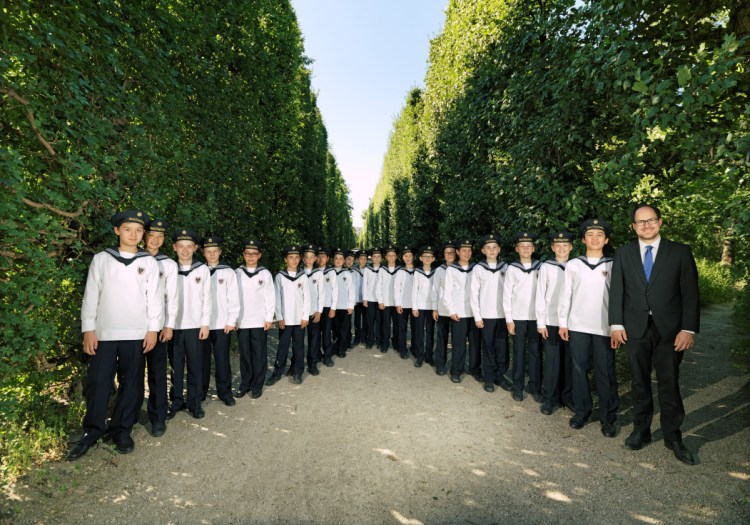This year’s holiday celebration in Portland will include the arrival of angels. Or, at least, the voices of angels.
The Vienna Boys Choir, consisting of two dozen boys between the ages of 9 and 14 with soprano and alto voices, will perform a holiday concert at 7:30 p.m. Nov. 28 at Merrill Auditorium. It is one of the best-known boys choirs in the world, with roots that go back at least five centuries, recognized for its range of repertoire and purity of tone, as well as its musical spirit.
For its Portland concert, “Christmas in Vienna,” the choir will sing Austrian folk songs, classical masterpieces, Christmas hymns and carols.
According to the choir’s Austria-based historian, the upcoming concert at Merrill is believed to be its first in Portland, though not the first in Maine. The boys performed in Orono in 2007. The Vienna Boys Choir has been a touring ensemble for much of its existence and covered a lot of turf in half a millennium, said the choir’s staff historian, Tina Breckwoldt, interviewed via FaceTime from Vienna.
The choir was founded by the decree of the Holy Roman Emperor Maximilian I in 1498, who wanted the boys’ voices as part of the weekly Sunday masses in the Imperial Chapel in Vienna, in part to show to the world that he had excellent musicians in his court and “to soothe his heart.”

The Vienna Boys Choir – actually four choirs – has visited the U.S. more than 50 times since 1932.
It was also established to spread the joy of music and showcase the emperor’s good taste. Breckwoldt called it “very much a traveling choir” and said the historical process was “a slow processional. They would have traveled by wagons and coach, some of the lesser ones on foot and others on horseback. Figures vary, depending on what the purpose of the travel was, but up to 200 people and maybe even more were on the road. It was quite an impressive traveling party.”
Today, the choristers travel by planes and buses and stay in hotels, but their purpose remains mostly the same: To provide joy and soothe hearts with the gift of music.
Today, there are four choirs, each with 25 boys. Generally, two of those four choirs travel simultaneously, usually for three months at a time. The choir has visited the United States more than 50 times since 1932, Breckwoldt said, in keeping its mission of sharing joyful music.

Oliver Stech is conductor of the Vienna Boys Choir.
The boys travel with a tutor, and their education is an ongoing concern, she said. Their academic year is divided into three terms, with one term devoted entirely to touring. “As a duty to the choristers in our care, we provide them with a rounded education that will give them the tools to make it, as it were, to be a part of society and a productive part of society, and to find their place,” Breckwoldt said. “We like to give them a voice, literally speaking and figuratively speaking, and equip them with something to provide them with a very good stead the rest of their lives.”
Over the years, its members have included many notable names of the classical music canon: Mozart, Bruckner and Schubert.
The choir almost failed following World War I and the fall of the Austrian empire. The modern version of the choir, as a professional musical ensemble, evolved in 1924. At that time, the choir switched from Imperial uniforms to a sailor-style outfit, for which it is known today, the historian said.
The choir retains a tough admittance policy, and the education of the boys includes elements of musical theory, sight singing and instruction on at least one instrument. There is no religious requirement.
There have been boys from New York, Virginia, Ohio, Minnesota, Washington, Colorado, California, Pennsylvania, Texas and North Carolina, but no one from Maine has ever been in the choir.
This isn’t your grandma’s Vienna Boys Choir, the historian said. These days, boys audition from all over the world, so each of the touring groups represents different races, cultures, ethnicities and religions. The group is involved in a multitude of endeavors, including community outreach all over the world.
Send questions/comments to the editors.



